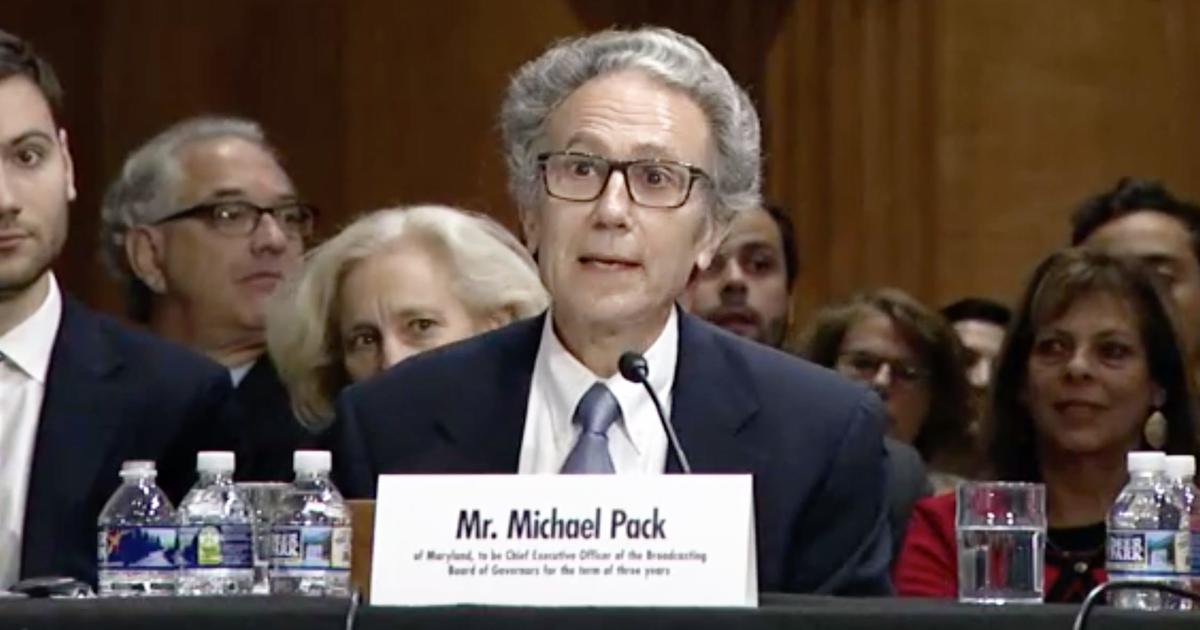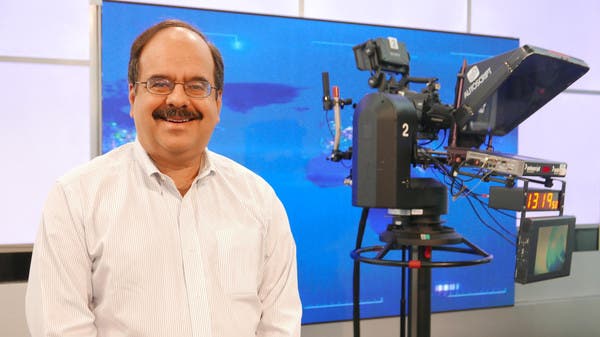
The media agency, created in 1942 to counter Nazi propaganda in countries under German occupation, has served as a significant constituent of soft power and a vital instrument in America’s public diplomacy toolbox. It is intended to represent American ideals to an overseas audience by providing fair and accurate news in 61 languages as an example of the nation's commitment to democracy and freedom of the press. With a weekly unduplicated global audience of 350 million adults, the USAGM is collectively one of the largest media networks in the world. 29.1 million of those viewers are in the Middle East and North Africa.
Making use of American soft power with the purpose of promoting its national interest and advancing foreign policy goals has always been a central element of US public diplomacy efforts in the Arab world. Audiences in the region have turned to these agencies that benefit from a "firewall" that is supposed to prevent any US government official from interfering with its reporting, for their independent reporting during moments of uncertainty as well as in their daily news consumption.
FIRING OF ‘HIGHLY REGARDED’ MIDDLE EAST BROADCASTING CHIEF
The firing of Alberto Miguel Fernandez, head of Middle East Broadcasting has left many disappointed. Fernandez has a 32-year diplomatic career covering the Middle East and Central America and is fluent in Arabic. During his Foreign Service career, he was widely regarded as one of the most knowledgeable and impactful U.S. Foreign Service voices in the Arabic-language media. Since taking over MBN in 2017, Fernandez has been hailed by many for bringing what they saw as balance to Arabic-language outlets Radio Sawa, a radio network that broadcasts music and news 24 hours a day, 7 days a week, with more than 370 newscasts per week and television channel al-Hurra, a network that broadcasts to 22 countries in the Middle East and North Africa via satellite, as well as al-hurra-Iraq Television. Alberto tweeted that he regretted his departure was so “precipitous,” adding, “wish the incoming people at @USAGMgov well. I hope they know what they are doing.”
James K. Glassman, a Republican who was the only person both to chair the government’s global media agency and to serve as Under Secretary of State for Public Diplomacy, told Majalla that while it is impossible at this point to tell how changes put into effect by the new leader of the agency will affect news coverage by MBN and America’s public diplomacy in the region, he is “alarmed and troubled by the initial signs,” adding, “without appointing new network chiefs, Mr. Pack summarily fired the entire senior leadership of the agency, including Alberto Fernandez of MBN, a fluent Arabic speaker who is highly regarded both in Washington and across the region."

Robert Satloff, the executive director of The Washington Institute for Near East Policy offered public support for the removed head of MBE: “He has been an exemplary leader - visionary, creative & effective - and our nation’s public diplomacy is better off today for his outstanding contribution,” he wrote on Twitter.
Al-Hurra's first news chief, Mouafac Harb, who was in charge from 2004 to 2006, told Majalla that the channel’s role in the highly competitive Arab media ocean is to promote freedom and democracy through the dissemination of accurate and relevant information about the US and the world In Arabic, “and the cause of freedom and democracy is best served when people are well informed so they can make an enlightened choice,” he said.
While Arab opinion is not uniform, diplomats who have served in the Arab world know that there are many Arabs who are critical of US foreign policy in the region and view it with considerable suspicion. This is in no doubt exacerbated by the longstanding problem of the spread of propaganda and misinformation in the Arab world that the US seeks to counter through media outlets such as al-Hurra.
Harb says that while al-Hurra targets an audience already well-trained in detecting propaganda, he hopes that the new changes in the management of US agency for Global Media “would not stir suspicion and instead try to cement the credibility and objectivity of the outlets.”
‘VOICE OF THE MULLAHS’
Media can become particularly instrumental in opening dialogue and developing trust between states where opportunities for traditional face-to-face diplomacy are limited such as in Iran, where the government bans satellite dishes and online access to international media. VOA Persian and RFE/RL Farda have been able to evade censorship and reach 23.4% of Iranian adults who consume USAGM media weekly.
Since 9/11, and with an increasing military presence in the Middle East, the US has sought to expand its Iran-focused broadcasting. In 2002, the then-Broadcasting Board of Governors (BBG) launched Radio Farda, intended to strengthen its previous radio efforts. Throughout the 2000s, expanded funding for Iranian content. In 2006, the Bush Administration and the US Congress authorised the Iran Democracy Fund, which would allocate tens of millions of dollars to BBG broadcasts.
Although this effort was softened under the Obama Administration, it has further escalated under the “maximum pressure” strategy of President Donald Trump. The fiscal year 2019 appropriations bill for the US Department of State expressly directed Secretary of State Mike Pompeo to consult with the USAGM to coordinate “counterinfluence programs” against Iran.
US Special Representative for Iran Brian Hook wrote for The New York Post in May, accusing the VOA of becoming the voice of Iran. “Why are US taxpayers funding a ‘Voice of the Mullahs’ in Iran?” asked Hook, who also serves as a senior adviser to US Secretary of State Michael Pompeo. “Iranian viewers say its American taxpayer funded programming often sounds more like the ‘Voice of the mullahs’ than the ‘Voice of America’,” he added. He also urged VOA Persian to highlight human rights violations in Iran, corruption within the Iranian government and to counter Tehran’s propaganda, warning: “If it can’t meet these standards — and soon — Congress should consider ending its funding and shutting down VOA Persian as a fiduciary duty to American taxpayers.”
While VOA Persian has for years faced complaints alleging the outlet has exhibited a pro-Iran bias, this past week’s spate of firings and the changing editorial direction of the VOA Persian amid sharpening US-Iran Conflict, has made it easier to see how the already blurred lines between the US government and US government-sponsored media could be erased.
“Every media organization maintains an editorial line, however, there should be a clear separation between the news and the administration policies,” said Harb.
“Having said that, the voice and views of the US administration should be heard and present among other point of views. I hope the new CEO will keep in mind that he is leading entities with a journalistic mission,” he added.
EDITORIAL INDEPENDENCE AT STAKE
Some Trump aides have long viewed VOA as an element of a "deep state," according to the AP news agency. Trump has also recently been vocal about his distaste for VOA's coverage. Previous administrations have expressed frustration with VOA over its editorial independence when unable to dictate what it broadcasts, but never with the same passion as Trump. In early April, the White House accused VOA of speaking for America’s adversaries and of becoming an echo chamber for Chinese propaganda and disinformation. (VOA denied the charge, stating that it was reporting factually on disinformation campaigns by China Russia, and Iran.) Trump’s social media director, Dan Scavino, tweeted a similar slam on VOA. Trump personally weighed in mid-April, saying that Pack would "do a great job" supervising Voice of America. "And if you heard what's coming out of the Voice of America, it's disgusting," Trump said. "The things they say are disgusting toward our country."
Pack argues that he is simply aiming to rejuvenate the institutions he’s overseeing as US foes escalate their propaganda efforts, but lawmakers have blasted the new CEO for the firings, as well as a move to disband advisory boards for each of the agency’s divisions with plans to replace them with his own aides. Senator Robert Menendez, the ranking Democrat on the Senate Foreign Relations Committee, said Pack was “hollowing out” the agency to appoint new managers he could control — a move he said would “undermine its historic role” and independence. He called the firings “an egregious breach of this organization’s history and mission from which it may never recover.” Pack’s team hit back at critics in a news release by indirectly disparaging prior leadership, vowing to eradicate “the known mismanagement and scandals that have plagued the agency for decades.”
“In his initial press release, Mr. Pack needlessly insulted both those who have served the agency faithfully for decades and the United States Senate. The firings and the insults may be just the mistakes of a novice, but they are deeply concerning,” Glassman told Majalla.
“Much is at stake. The agency has built a reputation for credible, reliable, and responsible journalism over nearly 80 years; that reputation can be destroyed in 80 minutes. Without ironclad credibility, the agency cannot effectively promote America’s interests. If the audience comes to believe that the agency is a crude propaganda arm of the U.S. government, then we might as well shut it down.”
Lawmakers are ratcheting up the pressure on Pack this week. New York Democratic Congressman Eliot Engel, chairman of the House Foreign Affairs Committee, set a hearing for July 8. Pack and USAGM have not indicated whether the new CEO plans to testify. In a separate action, the Senate Foreign Relations Committee announced that Senator Bob Menendez, has asked the State Department’s acting inspector general to investigate whether the firings violated a federal regulation protecting the news organisation’s’ independence.
“Mr. Pack may yet turn out to be a good leader of the agency. In the end, what is important is not his management style but the actual work that MBN and other networks produce. That work must be watched carefully – by your readers, by U.S. and international media and by the Congress,” said Glassman.









